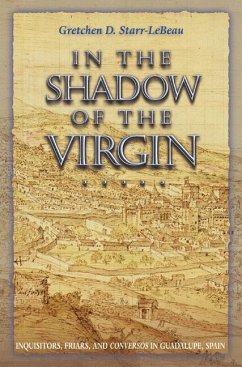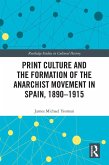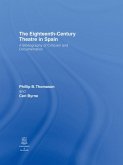On June 11, 1485, in the pilgrimage town of Guadalupe, the Holy Office of the Inquisition executed Alonso de Paredes--a converted Jew who posed an economic and political threat to the town's powerful friars--as a heretic. Wedding engrossing narratives of Paredes and other figures with astute historical analysis, this finely wrought study reconsiders the relationship between religious identity and political authority in late-Medieval and early-modern Spain.
Gretchen Starr-LeBeau concentrates on the Inquisition's handling of conversos (converted Jews and their descendants) in Guadalupe, taking religious identity to be a complex phenomenon that was constantly re-imagined and reconstructed in light of changing personal circumstances and larger events. She demonstrates that the Inquisition reified the ambiguous religious identities of conversos by defining them as devout or (more often) heretical. And she argues that political figures used this definitional power of the Inquisition to control local populations and to increase their own authority.
In the Shadow of the Virgin is unique in pointing out that the power of the Inquisition came from the collective participation of witnesses, accusers, and even sometimes its victims. For the first time, it draws the connection between the malleability of religious identity and the increase in early modern political authority. It shows that, from the earliest days of the modern Spanish Inquisition, the Inquisition reflected the political struggles and collective religious and cultural anxieties of those who were drawn into participating in it.
Gretchen Starr-LeBeau concentrates on the Inquisition's handling of conversos (converted Jews and their descendants) in Guadalupe, taking religious identity to be a complex phenomenon that was constantly re-imagined and reconstructed in light of changing personal circumstances and larger events. She demonstrates that the Inquisition reified the ambiguous religious identities of conversos by defining them as devout or (more often) heretical. And she argues that political figures used this definitional power of the Inquisition to control local populations and to increase their own authority.
In the Shadow of the Virgin is unique in pointing out that the power of the Inquisition came from the collective participation of witnesses, accusers, and even sometimes its victims. For the first time, it draws the connection between the malleability of religious identity and the increase in early modern political authority. It shows that, from the earliest days of the modern Spanish Inquisition, the Inquisition reflected the political struggles and collective religious and cultural anxieties of those who were drawn into participating in it.
Dieser Download kann aus rechtlichen Gründen nur mit Rechnungsadresse in A, D ausgeliefert werden.









